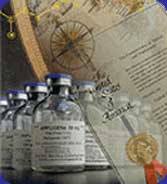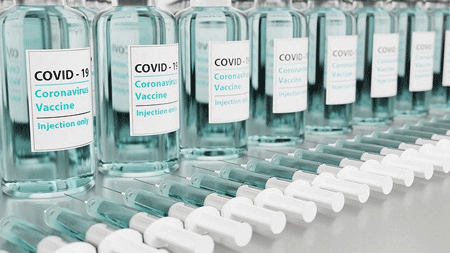



There are not too many subjects you can get Democrats and Republicans working together on, but finding cures for disease faster and more effectively is one of them. Diana Degat, a Democrat from Colorado and Fred Upton, a Republican from Michigan are partnering together in an attempt to make the United States ‘the health care innovation capital’ of the world. They call it the 21st Century Cures project.

Democrats and Republicans can agree on one thing – drugs are not being developed and approved fast enough
That, of course, implies it isn’t currently that, which may be something of a surprise given the U.S. spends more–much more–money on medical research and health care than any other country.
Medical research in itself, however, they noted, does not affect human lives until it shows up in treatments, and that’s where our system has fallen short. It only takes a quick look at NIH spending over time vs. drug approval over time to see that the doubling in NIH funding that occurred over the past 20 years has not been fulfilled on the treatment end.
That problem the two Congressman lay directly at the feet of a drug approval process they call a ‘relic of another era’.
A 2012 President’s Council of Advisors on Science and Technology (PCAST) report to President Obama on “Propelling Innovation on Drug Discovery, Development and Evaluation” agreed. The report stated that “the pace of new therapeutic development has not kept up with the explosion in scientific knowledge.”
This federally funded report produced by a Democratic administration bluntly stated regulatory factors were getting in the way of getting treatments out to patients.
“The timelines, size, failure rates, and costs of conducting trials are at all-time highs, with administrative and regulatory burdens often contributing to such increases.”
The PCAST report set a goal of doubling the output of new medicines for patients with “important unmet medical needs” by reducing clinical trial costs, time to market, regulatory burdens, and uncertainty. That couldn’t fit a Chronic Fatigue Syndrome community that has no FDA approved drugs better.
The PCAST panel asserted that doubling drug production in the U.S. could be done within 10-15 years, but that it would require differences in the way drugs are approved and surveilled, and in management at the FDA. PCAST made eight recommendations, several of which could directly impact the development of drugs for Chronic Fatigue Syndrome. Let’s look at some of them within the context of drug development for ME/CFS.
Recommendation 1: Support Federal Initiatives to Accelerate Therapeutics
Federal initiatives to accelerate therapeutics would, one hopes, put a bulls-eye on Chronic Fatigue Syndrome, a disease that thirty years later is still being ignored my major drug companies.

The FDA has been called on its stick it’s head in the sand approach that ignores the roadblocks facing drug development in ME/CFS and other disorders
A commitment to accelerate drug development might use ME/CFS as a case of study for what doesn’t work. Subsets, a vague definition, lack of research funding, fear of adverse reactions in a heterogeneous community, and questions about validated endpoints all present roadblocks to drug development under the current, expensive and rigid regulatory framework.
The actions the FDA has taken thus far to help ME/CFS community include publicizing the illness, publicly asserting they are willing to work with drug companies, and accelerating the pace of action on Ampligen.
These actions have done nothing to address the real needs of companies seeking to produce drugs for this disorder. More is clearly needed from the FDA for the ME/CFS community to have any expectation at all of having drugs produced in a reasonable timespan.
The 21st Century Cures proposal outlines several actions, however, which, if the FDA embraced them, could clear away many of the roadblocks thwarting drug development in this disorder.
Recommendation 4: Create a New Pathway for Initial Approval of Drugs Shown to be Safe and Effective in a Specific Subgroup of Patients
It will be difficult and may be impossible in disorders pockmarked with subsets, such as ME/CFS is believed to be, to gather the endpoints needed to trial drugs successfully. It is not financially viable for drug companies in the current regulatory system to trial drugs that target subsets in ME/CFS or most other disorders.
Creating a pathway for drugs that treat subsets in disorders would require creating less financially burdensome ways to assess drug effectiveness – a critical need in ME/CFS.
ME/CFS physicians are eager for this to happen. Dr. Klimas is interested in trialing immune drugs in some patients. Dr. Peterson has provided evidence of Vistide’s effectiveness in a subset of patients. Ampligen is clearly very effective in some patients.
Given the likely presence of numerous subsets in ME/CFS, it may be unrealistic to expect any drug to fulfill the FDA’s criteria for approval unless subsets are targeted.
Rejigging a Cadillac Drug Development Process
Recommendation 5: Explore Approaches for Adaptive Approval Via Pilot Projects Under Existing Pathways, but Do Not Create New Adaptive Approval Pathways Through Legislation
“Much progress remains until efficient trials with flexible designs aided by innovative technologies are no longer the exception to the rule. How can these types of trials become the norm?”
This recommendation strikes at the heart of the needs of the ME/CFS community. Some sort of ‘adaptive approval’ process is clearly needed in disorders like ME/CFS which lack drug company interest. Processes which allow for conditional approval of a drug based on reduced evidence and which then implement a monitoring process that allows for more data gathering and for the drug company to recoup its costs are probably a necessity for ME/CFS.

Should FDA approved treatments be denied to people who don’t have the kind of ‘Cadillac disorders’ that drug companies are willing to invest in?
It’s clear, given the close votes and the statements emanating from the FDA panel voting on Ampligen approval, that many members would have readily agreed to an adaptive process of drug approval that allowed Hemispherx Biopharma to gather more safety and effectiveness data during a slow rollout of the drug.
With that option not present, however, Hemispherx and the ME/CFS community were left with an all or nothing option: produce a major trial Hemispherx could not afford, or no FDA approved drug for people with ME/CFS that doctors have shown works.
There must be an alternative to the ‘all-in’ process of drug approval that requires tens of millions of dollars as an entry fee.
If the FDA is to realize its mandate to improve the health of all Americans, it must find a way to assist the millions of Americans with disorders like ME/CFS which are not receiving interest from drug companies.
Recommendation 7: Reform Management Practices at FDA
We saw hostile FDA representatives take Hemispherx to task for small anomalies in the safety data. We saw an FDA representative state she would not approve a drug like Ampligen without a 1,000 person study. We saw Hemispherx representatives state they were prepared to reply to FDA queries but were prevented from doing so by the FDA rep moderating the panel discussion. We saw one panel member later acknowledge that maybe she didn’t understand one of the questions.
Finally, after the panel had rejected the drug largely due to safety concerns, we saw the FDA state that it was not concerned about Ampligen’s safety issues. Something’s very wrong when a much needed drug is kept from a community by such a process.
The FDA acknowledged that Chronic Fatigue Syndrome is a major disorder and that the need is great, but it has yet to take any steps or act creatively to remove the roadblocks that block drug development for this disorder.
Approving Ampligen on a conditional basis would be one sign that the FDA recognizes the needs of the ME/CFS community and is working creatively to address them.
A New Pathway For Drug Approval
The FDA should lay out a pathway for drug approval that addresses the unique needs of disorders like ME/CFS which do not receive drug company attention and/or significant research funding.
Hemispherx Biopharma’s decades-long experience with Ampligen at the FDA demonstrates that the financial burden the current regulatory system places on small drug companies makes it almost impossible to bring drugs to market. When last heard from, the FDA was requiring Hemispherx to produce new large studies – an immensely difficult undertaking for a small company.
Until the FDA can find some way of easing the financial burden of brining drugs to market, it’s clear, given the lack of big pharma interest in ME/CFS, no FDA approved drugs for ME/CFS are likely in the forseeable future.

The FDA provides a flexible approach to other disorders which don’t get drug company interest. Why not ME/CFS?
A pathway that require reduced standards for conditional approval of a drug, heightened monitoring of patients taking the drug, further data gathering and a clear delineation of risks to patients could ease the path to drug development for ME/CFS.
The FDA makes similar exceptions for other conditions (rare disorders) that do not receive drug company interest. Drugs for people with rare disorders do not require large clinical trials for approval, and the FDA is willing to accept doctor and expert witness testimony that the drugs are safe and effective.
Chronic Fatigue Syndrome is in the same boat. It receives little research funding, few clinical trials have been done, and it receives almost no interest from the pharmaceutical companies. The only difference is that more people have it. That means more subsets are likely present and the chances of an adverse reaction are greater – something the FDA avoids at all costs.
The needs of a million people with ME/CFS should not, however, be thwarted by the FDA’s worries about adverse reactions. That problem could be ameliorated by slow rollouts of a drug, tight monitoring, and a clear recognition of the risks – processes the ME/CFS community would surely embrace.
Conclusion
“The timelines, size, failure rates, and costs of conducting trials are at all-time highs, with administrative and regulatory burdens often contributing to such increases.” – President’s Council on Propelling Innovation on Drug Discovery, Development and Evaluation
The FDA’s inability to approve drugs for ME/CFS means that people with ME/CFS experiment with their health every day with unvalidated supplements and drugs.

The FDA should start the process of adapting to the situation ME/CFS finds itself in by conditionally approving Ampligen.
We’ve seen with Ampligen what the current system produces – a drug acknowledged both by doctors that have extensively used it and now by the FDA to be safe, and yet which is still unavailable to the ME/CFS Community. The system clearly lacks the flexibility to effectively deal with the needs of a disorder such as ME/CFS.
Finding a way to make Ampligen available to the ME/CFS community is a test case of the FDA’s ability to produce, as the Presidential report put it, “efficient trials with flexible designs.”
Will the FDA responsibly and creatively adapt to the needs of the ME/CFS community, or will it remain a ‘relic’ governed by past directions that do not fit the needs of the 21st century?
We’ll find out.
Next up: How to support the FDA to help all Americans with illnesses.







It has been close to 30 years since I came down with ME-CFS, and even finding a doctor to give appropriate medications for the symptoms I struggle with daily is next to impossible. Having drugs that are appropriate is a good first step and decades late. Having doctors who are trained to give them to the people who have ME-CFS is another very important part. I am encouraged and very much appreciative of these great senators. I hope it is a process that will be seen all the way to treatment getting to us soon, before another decade has come and gone.
Agreed. The federal advisory panel for Chronic Fatigue Syndrome has many times asked the NIH to support Centers of Excellence to provide research and treatment for people with ME/CFS.
The federal government is really the only viable party to get this moving. They have the funds and it doesn’t take a lot – but they haven’t budged yet.
Great article, Cort!
Thanks!
One of the reasons new drugs require so much testing is the liability issue for the manufactures.
Give them immunity to law suit and things really roll.
Regarding “unproven supplements” which keep many of us propped up, are studied much more than is admitted by the medical universities.
I believe the WPI looked closely at Ampligen and passed on it.
And, I believe the “gut flora” is an important component of the immune system and is a major player in most all diseases, CFS, no exception.
Sounds great, hope they can get the houses behind them or I doubt it’ll get any of the entrenched FDA idiots off their asses!
And we saw one panel member that thought Ampligen was an immune suppressant (which would be logical since the panel often evaluates DMARDS), and another panel member who left before the vote!
Right….a panel member left before the vote! Unbelievable…
While I’m desperate for a cure or treatment that works I’m also not willing to take untested drugs…. I would rather stay this level of sick than any worse.
I’m sure there are many people who, in retrospect, agree with you!
Well written article. Let’s hope some progress is made. So many people are suffering.
Other countries seem to be able to move drugs through their approval system faster. Why doesn’t the FDA use their data from clinical trial to expediate decisions our approval or denial for US patients. It seems to me that there is a lot of redundancy in all of the studies and trials while patients are suffering and dying from drugs that may help.
But cheers, to the Congressmen who are looking at this probem and try to reform the FDA. Long overdue.
Would like to have more physicians, pharmacists, scientists, engineers, people with specialty knowledge that can be applied to our problems. Want to see less lawyers, big business people, people using politics to their own interests involved.
Can organize the appropriate educated people in groups that will connect with other groups needed to get tasks done for our country’s physical, and population needs addressed with workable solutions.
Well stated Deborah!. I do hope the government starts listening to the people it is supposed to be working for. Unfortunately, money has always come first and Big Pharma has lots of it.
In Canada as well we have bureaucrats hung up on their job as gatekeepers, not facilitators. If a recognizable medical constituency (“neuro-immunologists”?) came into being, to be marketed to, would this not be a strong sign that the work being done by our U.S. “senator-mentors” and hopefully the FDA, augurs a tear-down and rebuild of the existing roadblocks to effective trials?
am a 55 male had 2 surgeries then got cfs been to many doctors and many supplements with no help or little can not work any help in research for this disease of cfs. don’t know what to do have a very high Epstein bar virus could that be some of it need help and advice please. JR